Why did Pushkin call his muse Anna Kern a harlot
Categories: Celebrities | History
By Pictolic https://pictolic.com/article/why-did-pushkin-call-his-muse-anna-kern-a-harlot.htmlRussian aristocrat Anna Petrovna Kern was one of the most striking beauties of the Pushkin era. It is to her that the poem "I Remember a Wonderful Moment" by the great Russian poet is dedicated, and her profile is depicted in the margins of the manuscript of the poem "Eugene Onegin". But, despite all the romanticism, Pushkin's relationship with Kern was very ambiguous.
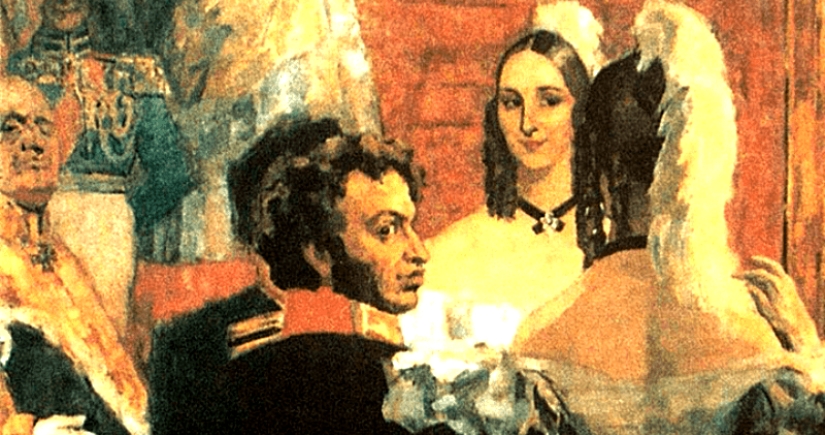
Alexander Pushkin first met Anna Kern in 1819 in St. Petersburg, visiting Elizabeth Olenina, her aunt. Anna was only 19 years old, but she had been married for two years to General E. F. Kern, who was 35 years older than his wife. Married to an old man, Anna had no love or even respect for her husband.
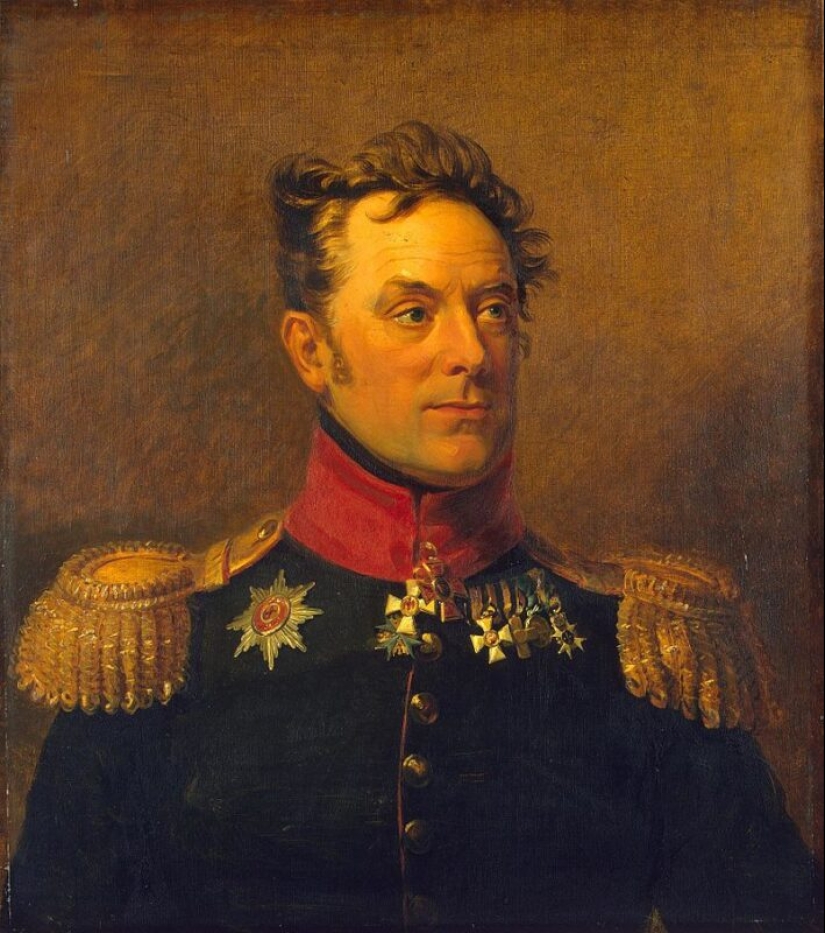
Before getting into the brilliant society of the capital, the young general's wife had to push around a lot with her military husband in the garrisons. In just two years of marriage, Anna managed to live in Dorpat, Riga, Kiev, Elisavetgrad and Pskov. After the boring provincial balls of Kern, everything was a novelty – young gallant dandies, English and French speech, famous personalities, among whom was the fabulist Ivan Krylov and other writers.
In the company of celebrities and gallant cavaliers, the short, dark-skinned Pushkin was almost lost. But he did not miss the opportunity to express his delight to the beautiful Kern. "Is it possible to be so pretty?!" said the poet, and at that time such a compliment was considered very bold.
Pushkin, who had already graduated from the Tsarskoye Selo Lyceum, was burning out his life in St. Petersburg at full speed. He played cards and racetracks, participated in literary societies, and, of course, hung around beautiful women. A compliment from a young, but already well-known poet, Anna took quite indifferently and communication with Alexander Sergeevich was interrupted for a long 6 years.
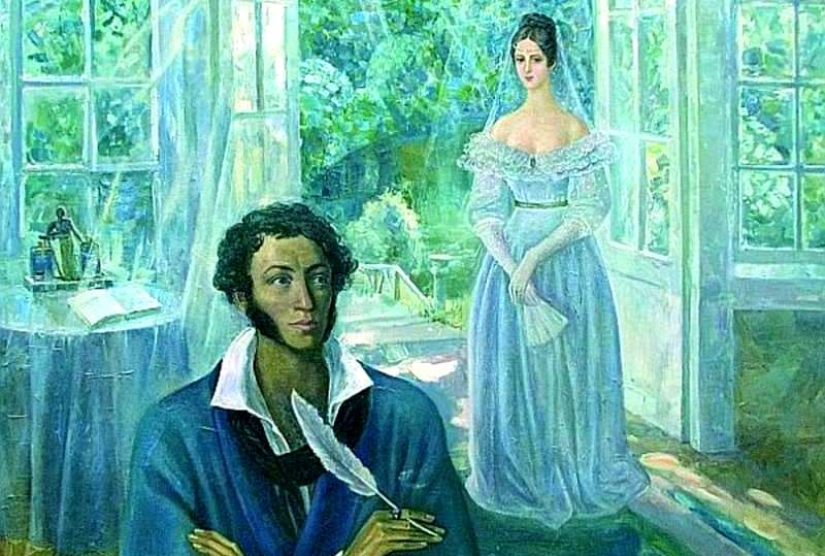
The next time Pushkin saw the Core in Trigorsky-the estate located near Mikhailovsky, where the poet was in exile. In the village, the poet was incredibly bored and he did not miss the opportunity to visit his neighbors-landowners. Most of all, Pushkin liked to visit the Wulfs in Trigorsky. The owner of the estate, Praskovya Alexandrovna Osipova-Wulf, her two daughters, stepdaughter and son were always happy to have a neighbor who had a cheerful disposition and was a wonderful storyteller.
In 1925, Anna Kern came to Trigorskoye, to whom the owner of the estate was her own aunt. This time Pushkin really fell in love, and the object of his adoration was more favorable to courtship than a few years ago. Kern herself by that time had become an experienced flirt – she laughs at Pushkin's jokes, but at the same time pays attention to the son of the owner of the estate, Alexander Wolf.
The poet goes mad with passion and jealousy. He picks up a stone in the garden, on which his beloved stumbled, dedicates to her the first chapter of "Eugene Onegin" and gives the manuscript, putting a sheet of paper with the same verse "I remember a wonderful moment"between its pages. Kern, after reading the poem, found it beautiful, but Pushkin, for some reason, suddenly takes the sheet and does not want to return it. Anna has to persuade him to get the gift back. In short, the poet behaves like a boy in love.
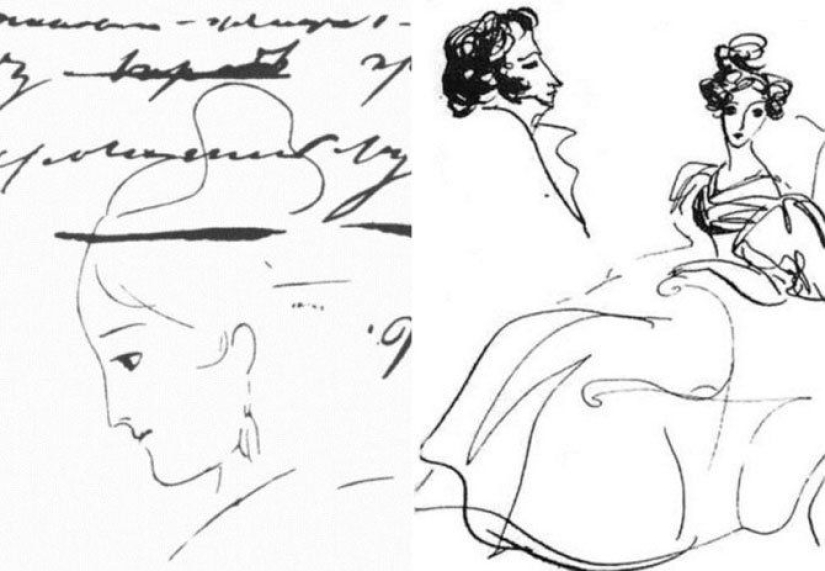
But the summer of 1825 passed quickly and it was time for Anna Kern to return to the capital to her decrepit and despondent husband. About what was the farewell of the poet and his beloved history is silent. But there are many references to the Core, made by Pushkin two years later and later.
In one of the letters to friends, the poet writes about his "genius of pure beauty" – " The lady Kern's feet are dirty." In another message, he calls the woman "our Babylonian harlot Anna Petrovna", and later writes to his friend Sobolevsky and completely disgusting:
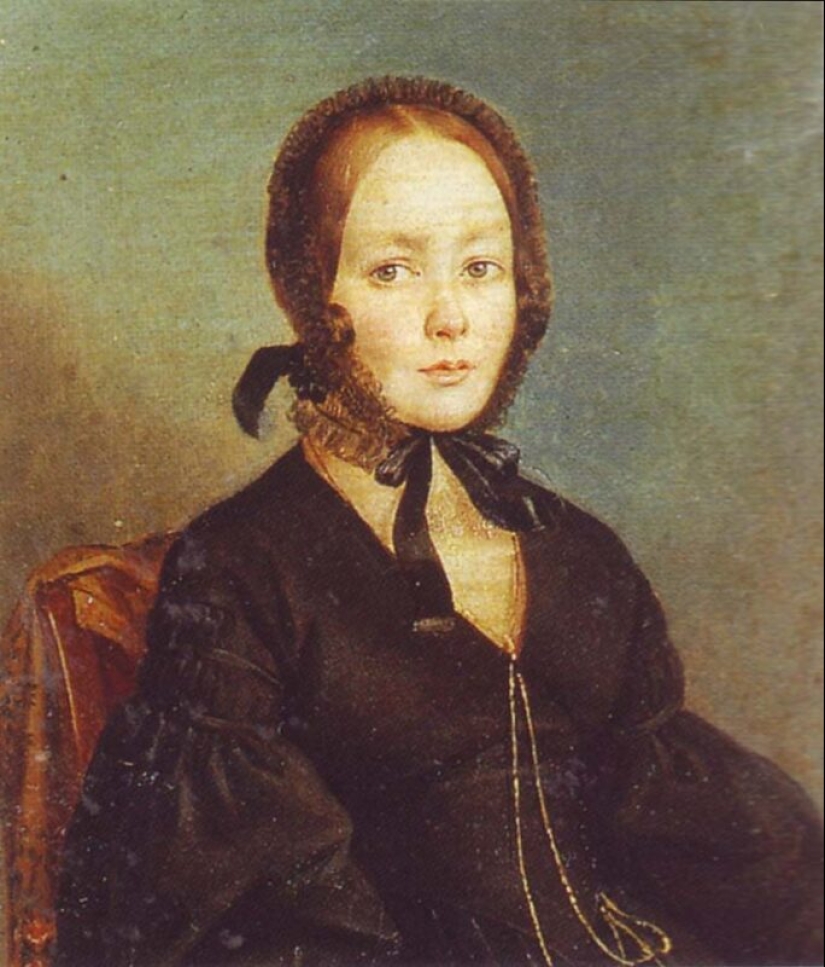
Kern herself at this point becomes a widow with a good pension and lives in St. Petersburg a busy life of a socialite. Anna has one affair after another, which doesn't make her reputation as a divorced woman any better. She has an affair with the same son of her aunt Alexander Wulf, then with Pushkin's lyceum friend Delvig, with the composer Glinka, and even with Sobolevsky, to whom Alexander Sergeevich wrote so unflatteringly about Kern.
Pushkinists believe that the poet was deeply disappointed in his love, seeing that Kern quickly starts easy relationships with men. He was offended that the "genius of pure beauty", with whom he had been unrequited in love for several years, was so accessible to others.

Anna Kern and Alexander Pushkin communicated as friends until the poet's death. The former lover even visited the poet and his wife Natalia Goncharova. Love, of course, was out of the question. An amazing, symbolic meeting of the poet and his muse and lover took place in 1880.
Then a monument to Pushkin was erected on Strastnaya Square in Moscow, and a modest funeral procession blocked the road to the platform with a massive bronze figure, which was barely dragged by heavy horses. This was the burial of Anna Petrovna Kern, who died in loneliness, poverty and oblivion at the age of 80. Many Muscovites found this meeting symbolic.
Keywords: Saint Petersburg | History | Celebrities | Love | Relationships | Poet | Pushkin
Post News ArticleRecent articles

It's high time to admit that this whole hipster idea has gone too far. The concept has become so popular that even restaurants have ...

There is a perception that people only use 10% of their brain potential. But the heroes of our review, apparently, found a way to ...
Related articles

In the fall of 1972, Bill Yates traveled through the countryside in the vicinity of Tampa, Florida. At that time, he was studying ...

When a person is in a life-threatening situation is awful, but even worse when it happens to a child. 11-year-old American Terry ...

Remember how broke the "unbreakable" scoop? The photo preserved in the photo album of almost every family! A selection of vintage ...

New Year's is a time to surprise and delight loved ones not only with gifts but also with a unique presentation of the holiday ...